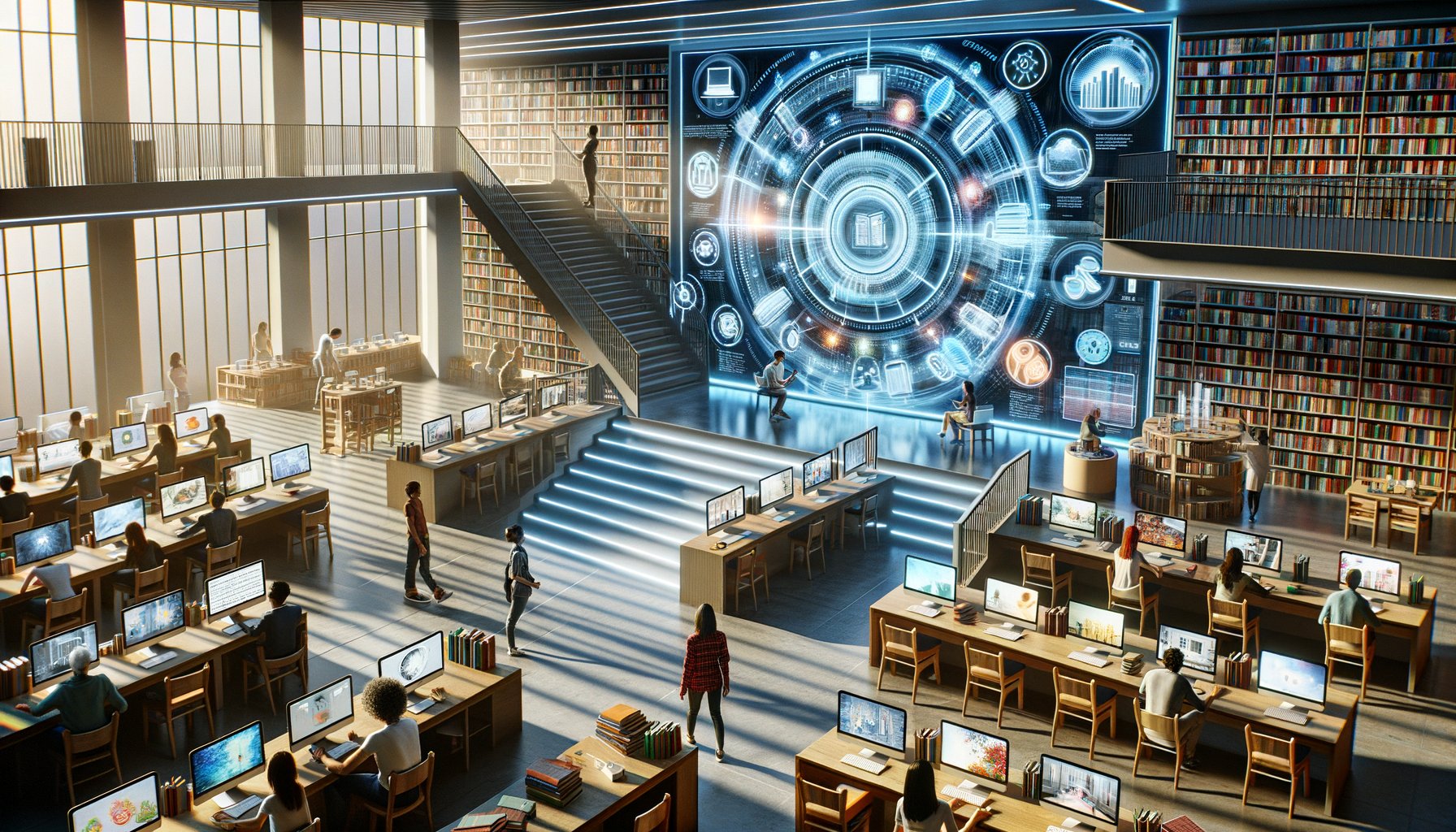Physical Address
304 North Cardinal St.
Dorchester Center, MA 02124
Physical Address
304 North Cardinal St.
Dorchester Center, MA 02124

As we journey through the 21st century, it’s clear that the digital revolution is reshaping our world in ways we never could have imagined. From the way we communicate to how we shop, everything has been touched by this wave of change. And amidst this whirlwind of transformation, one institution stands tall, adapting and evolving with the times – our beloved libraries.
Libraries have always been bastions of knowledge and learning. They’ve stood as timeless monuments to human curiosity and intellect. But in an age where information is just a click away, what does the future hold for these hallowed halls? Will they fade into obscurity or will they morph into something new and exciting?
The first significant shift towards digitalisation in libraries was seen with the advent of online catalogues. Gone were the days of thumbing through card catalogues; instead, users could now search for books using computers right within the library or even from their homes.
Next came eBooks, giving patrons access to thousands upon thousands of titles without ever needing to leave their homes. This move not only expanded access but also helped libraries cater to physically challenged individuals who may find visiting a physical library difficult.
Today, many libraries around the world have taken things a step further by becoming entirely digital. These digital libraries offer an extensive range of resources – from eBooks and eJournals to audio books and streaming videos – all accessible via a computer or mobile device.
This move towards digitalisation has allowed libraries to extend their reach beyond geographical boundaries. A student sitting in Sydney can now access resources from a library in New York without having to hop on a plane! Talk about global village!
But it’s not just about books and resources. Libraries have always been community hubs – a place for people to gather, learn and share ideas. And this aspect of libraries is only becoming more important in the digital age.
Many libraries now offer free Wi-Fi, computer access, and digital literacy classes. They’ve become makerspaces where individuals can come together to create, innovate and learn new skills like coding or 3D printing. Some libraries even host podcasts and webinars, bringing knowledge and learning to an even wider audience.
In the digital age, the role of librarians has evolved significantly too. They’re no longer just custodians of books; they’re information specialists who guide patrons through a sea of online resources. They teach digital literacy, help users navigate databases and even curate digital content.
They’ve become tech-savvies who understand how to leverage technology to enhance the library experience for their patrons. In many ways, they are the unsung heroes of this digital revolution within libraries.
Of course, this shift towards digitalisation doesn’t come without its challenges. There are concerns about data privacy and security with online resources. There’s also the issue of digital divide – not everyone has access to a computer or reliable internet connection.
And let’s not forget about those who simply prefer physical books over eBooks (myself included!). For these individuals, nothing can replace the smell of a new book or the feel of turning a page.
Despite these challenges, I believe that libraries have a bright future in this digital age. They might look different – more screens than shelves, more technology than books – but their essence will remain the same. They’ll continue to be places of learning and community, spaces that foster curiosity and creativity.
So, here’s to our libraries – may they continue to evolve, innovate and inspire us in this digital age and beyond!